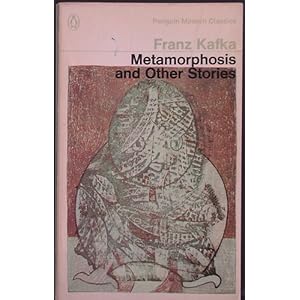 As I mentioned in my last post, Alan Ryker posted a pretty interesting piece about the horror genre the other day. Which got me thinking about the whole 'genre' concept in general. Some people have really strict definitions of horror, of sci-fi, etcetera, sometimes subdividing to a lunatic degree. It's essentially a book seller's view of genre, as opposed to a book writer's one.
As I mentioned in my last post, Alan Ryker posted a pretty interesting piece about the horror genre the other day. Which got me thinking about the whole 'genre' concept in general. Some people have really strict definitions of horror, of sci-fi, etcetera, sometimes subdividing to a lunatic degree. It's essentially a book seller's view of genre, as opposed to a book writer's one.Me I think of genre as more like food flavourings and spices. True, you get some books that are like, say, a curry. One flavour dominates. These are your true genre novels, if we have to call them that. But some of the most interesting cooks are those that use flavours and ingredients in new and exciting ways. Which is why we have cardamom ice cream nowadays, as well as curries.
The books below are all ones that I think of as being like cardamom ice-cream; they might not say 'horror' on the back, but they sure as hell have some of the tang of a horror story, at least to my palate. I've started with one where the flavour is strong and the case obvious to me, and moved on to some where there's a merest after-taste and you may disagree with me entirely; let me know in the comments.
Kafka - Metamorphosis and Other Stories
 Now if you don't agree this tastes somewhat of turmeric, garam masala and cardamom, then you should probably stop reading now. While this is, from one angle, the surreal, modernist classic it's always talked up to be, stories like Metamorphosis, The Penal Colony and The Judgement have had an obvious impact on horror writers since they became well known. The obvious literary successor to Kafka would seem to me Robert Aickman more than anyone - The Swords or The Trains being blinding examples.
Now if you don't agree this tastes somewhat of turmeric, garam masala and cardamom, then you should probably stop reading now. While this is, from one angle, the surreal, modernist classic it's always talked up to be, stories like Metamorphosis, The Penal Colony and The Judgement have had an obvious impact on horror writers since they became well known. The obvious literary successor to Kafka would seem to me Robert Aickman more than anyone - The Swords or The Trains being blinding examples.Doris Lessing - The Fifth Child
I studied this one at university. There was a lot of talk in the lecture halls and seminars about how it comments on modern nuclear families, on the media's obsession with either protecting or demonising young people, about autism maybe. And I agreed. And I said it was also a horror novel.
I didn't think any of this was controversial or unjustified by "the text" as the lecturer insisted we call it, but you should have seen some of the looks I got. Some of the self appointed guardians of literature really don't like you sullying their word-view with genre fiction. Fortunately Lessing, with this book and the sci-fi of some of her others, ignores such philistines.
No. Horror is an emotion, a spice... And often what it tastes like is this: the nagging, persistent feeling that although the world seems okay, something, somewhere, is horribly wrong. You can taste it in The Haunting of Hill House, you can taste it in The Shinning, and you sure can taste it in Philip K Dick's books. Again, I'm not arguing Time Out of Joint isn't sci-fi, it absolutely is. I just argue that doesn't mean it hasn't also got a tang and whiff of horror to it.
Horror?
Or, to describe R&GAD another way, it's about two people who begin to suspect that something, somewhere, is not quite right in their world... Sound familiar? Taste familiar?
Seriously, read it again (or read it, if you haven't - it's a play that works well on the page too). Aren't the initial signs a little bit, well, unnerving (those coin tosses)? When the characters try and reassure each other and themselves all is well, isn't that sinking feeling that they're wrong familiar?
And they all die at the end, which must count for something.
Now, after that post, I really fancy a curry...